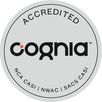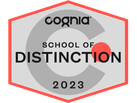IDEAVENTIONS ACADEMY
|
Did you know that Ideaventions has a long history of PreK- 3rd education beginning with the founding of our out-of-school programs in 2010? We pioneered a very successful, multi-year, mini-Einsteins science curriculum and have taught thousands of students to enjoy discovery and exploration. Read on to learn more about how we are bringing this back to our school!
When we decided to expand to high school in 2016, we also decided that our final goal was a K-12 school and that we would add the lower elementary school grades after our second graduating class. We believe in building our school the way you would approach an engineering project - develop the components slowly, improve and modify, and then integrate them together. Well, we’re here! We’re about to graduate our class of 2022 and we are turning our sights to 1st to 3rd grades! Adding the lower grades is different from the high school grades since we can’t add one year at a time, so we wanted to complete our high school program first. We are starting with 1st through 3rd, then we’ll add Kindergarten in two years, which will complete the range of grades from K - 12. We are so excited to begin work with the lower elementary grades and to innovate in education and support our younger curious learners! Our plan had been to announce the expansion in September and decided to accelerate the launch to support 1st to 3rd graders as we know that we can make a difference in these children’s lives and the sooner we open the program, the more kids we're able to help. In the tradition of our upper elementary curriculum, we will continue to provide students the opportunity for:
What does a week look like for our future 1st - 3rd graders?
We agree that downtime during the day is necessary for health and wellness, social development, and set the students up for success in academics. Younger children need even more opportunities for movement and our schedule is designed for breaks and movement throughout the day and throughout the week. I get so excited when I think of each part of the curriculum, which we have been slowly building over the past eight years. The integrated history units where students immerse themselves in world cultures and civilizations and through integrated projects work learn about engineering, art, music, community, and character education. In science, we will draw on our decade of experience in inquiry-based, hands-on learning where our students will continue to experiment in the science lab. As we draw our seventh year to a close we are proud of the strength and challenge of both our liberal arts foundations and how they come together with our engineering and science programs. We are excited to be able to provide these opportunities to 1st to 3rd graders looking for an academic challenge in a caring, hands-on, and creative community. First through third grade applications will be accepted starting on Wednesday, April 27.
0 Comments
We just wrapped up one of my favorite activities of the year - course selection. When I think of my experience as a student, it was very different from how we do it at school. My school counselor was there to take my form, and no one advised me on what to take or what that may mean. I selected courses based on what looked interesting, and my parents, not having studied in the US, weren't involved. I loved the few courses I was able to choose on my own - I had fun learning statistics and I really enjoyed my CAD class. I had so much fun learning French all four years and German for one. My goal at the time was to be able to travel through Europe and speak with the people I met. I had English and Spanish down, I could converse in French, I was learning German, and that left Italian and Portuguese to explore.
In college I had so many choices that I hadn't been presented with before, and I would read and reread the Course Bulletin and circle all of the classes that I wanted to take (this is before electronic course selection). I think that there was 10+ years of classes I wanted to take, and I had to condense it down to four years. I continued studying French and German whenever I could, and quickly (and sadly) realized that there were some college courses that I wanted to explore that I was unprepared for. I felt that I couldn't make the time to build the skills in order to not embarrass myself in the class. Mostly, these were writing courses. I didn't consider myself a "bad writer", and in high school I had done great in most of my writing assignments, but problem solving was just easier for me. That said, problem solving classes in college were really difficult and time consuming for me, so writing intensive classes had to take a back seat. Long story short, when we counsel students and their families on course selection, we like to bring up the concept of skill development. There never seems to be a good time to work on a skill that is difficult for a person. When kids are in elementary school, they're too little, they should have fun. When kids are in middle school, it's "the teenage years" and with so much is already going on families adding another stressor is hard to do. Finally, in high school, the thought of college admissions makes students and families nervous to take classes in areas that are difficult. Ms. Sheri, our counselor, does an amazing job of encouraging students to "eat their (skills) vegetables" and sign up for non-preferred classes to build those skills. What does skill development mean? For students heading to four-year universities who want to study one of the pre-professional degrees (engineering, business, pre-med), a natural or social science, or one of the liberal arts, I think of the necessary skills as reading academic texts, reading literature, writing for different audiences (e.g., case studies, history papers, analyses, journalistic writing, etc.), studying for different types of classes, time management, problem solving, and taking notes. Our high-school curriculum as a whole presents the opportunities for students to work on these skills. Learning is a process and one can think of learning as stretching our muscles, and just how muscles are uncomfortable when you stretch them, skill development can be uncomfortable as well. The kids who I have seen be most successful enjoy the process of learning. They want to do well, and grades are not the driver; their grades are a byproduct that follow. They are curious to explore new areas of knowledge and are open to working on skills or exploring new ways to learn. There are different levels at which students can challenge themselves, and we advise them to choose courses to develop their skills and develop breadth. We also share how their course selection may be viewed as part of the college admissions process and a way to explore subjects that may teach them about themselves. Course selection is a multidimensional conversation that works best when viewed from an aspect of exploration of knowledge and skill development. |
AuthorJuliana Heitz is co-founder of Ideaventions Academy and is very excited to share the thinking behind the Academy. Archives
October 2023
Categories |
Copyright © 2010-2024| 12340 Pinecrest Road, Reston, Virginia 20191 | 703-860-0211 | [email protected] | Tax ID 27-2420631 | CEEB Code 470033
 RSS Feed
RSS Feed




